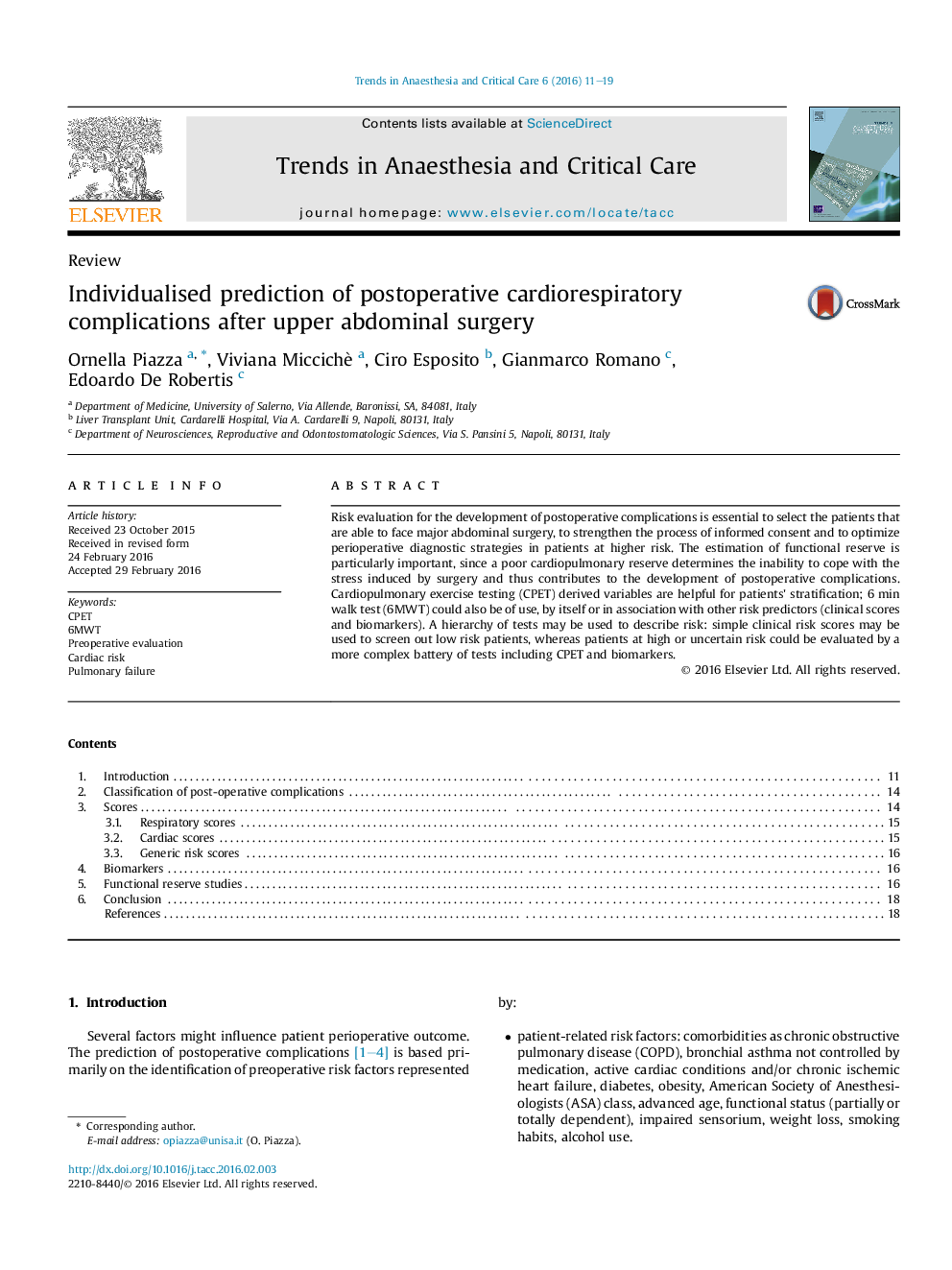| Article ID | Journal | Published Year | Pages | File Type |
|---|---|---|---|---|
| 2772565 | Trends in Anaesthesia and Critical Care | 2016 | 9 Pages |
•Assessing the individual risk of postoperative complications after major upper abdominal surgery is difficult and uncertain.•Scoring systems and biomarkers may assist perioperative risk stratification.•Cardiopulmonary reserve evaluation is pivotal for patients' preoperative assessment.
Risk evaluation for the development of postoperative complications is essential to select the patients that are able to face major abdominal surgery, to strengthen the process of informed consent and to optimize perioperative diagnostic strategies in patients at higher risk. The estimation of functional reserve is particularly important, since a poor cardiopulmonary reserve determines the inability to cope with the stress induced by surgery and thus contributes to the development of postoperative complications. Cardiopulmonary exercise testing (CPET) derived variables are helpful for patients' stratification; 6 min walk test (6MWT) could also be of use, by itself or in association with other risk predictors (clinical scores and biomarkers). A hierarchy of tests may be used to describe risk: simple clinical risk scores may be used to screen out low risk patients, whereas patients at high or uncertain risk could be evaluated by a more complex battery of tests including CPET and biomarkers.
Graphical abstractFigure optionsDownload full-size imageDownload as PowerPoint slide
